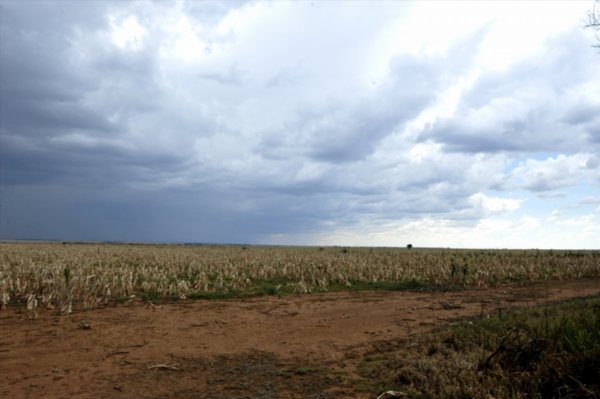Water restrictions implemented in Limpopo
Updated | By Pieter van der Merwe
The Department of Water and Sanitation has restricted water usage in the north-eastern parts of Limpopo due to persistent dry conditions.

The Department of Water and Sanitation has restricted water usage in the north-eastern parts of Limpopo due to persistent dry conditions.
It comes a week after Minister Nomvula Mokonyane told the World Water Week meeting in Sweden that South Africa would record below average rainfall as the arid conditions are expected to continue for up to three years.
On Wednesday, Margaret -Ann Diedricks, the department’s Director General, published the restrictions in the Government Gazette saying she believes “a water shortage exists… due to insufficient rains.”
“It is necessary to limit the taking of water from Mutshedzi, Nzhelele, Nwanedi and Luphephe, Middle Letaba, Nsami, Modjadji and Tzaneen sub-system/ dams,” read the notice.
Despite a 60% chance of showers predicted for Limpopo this weekend, a scientist for the South African Weather Services says it could get worse as there currently is an El Niño in effect.
Kobus Olivier said spring might receive above normal rainfall, however the situation is not the same for the summer.
The World Meteorological Organisation meanwhile said El Niño is expected to reach its peak between October and January.
Olivier said their forecasts at this point only go as far as January 2016, but he said given the condition, the north-eastern parts of the country could remain dry up to March or April.
For the Mutshedzi Dam, the department reduced domestic water consumption by 35%, while households dependent on the Nwanedzi and Luphephe Dams will have to cut their water usage by more than half.
Musina, Louis Trichardt, Thohoyandou and the surrounding communities will be affected.
For irrigation purposes: 10% has been reduced from the Nzhelele Dam, 50% from Nwanedi and Luphephe while farmers in and around Tzaneen will only have access to 35% of the water they currently enjoy.
Departmental spokesperson Sputnik Ratau said they do not want to see any farms dry up as food security is a main priority. He therefore urged farmers to be smart and limit their consumption to the early mornings and later afternoons.
“We know that those are the times when we have less evaporation, so more water can be saved during the course of the day,” he said.
Limpopo is not the only province of concern for the summer.
The department has also identified KwaZulu-Natal, Northern Cape, Free State and the North West as provinces of priority.
Ratau urged widespread cooperation to ensure the country is water secure and possibly see the restrictions lifted early.
(File photo: Gallo Images)
Show's Stories
-
Where to collect water during Rand Water maintenance
Water tankers where residents can collect water have been placed across ...
Breakfast with Martin Bester 21 seconds ago -
Europe gets creative to beat the heat
From free museum tours to "climate oases" with cold drinks and air-con, ...
The Drive with Rob & Roz 12 hours ago